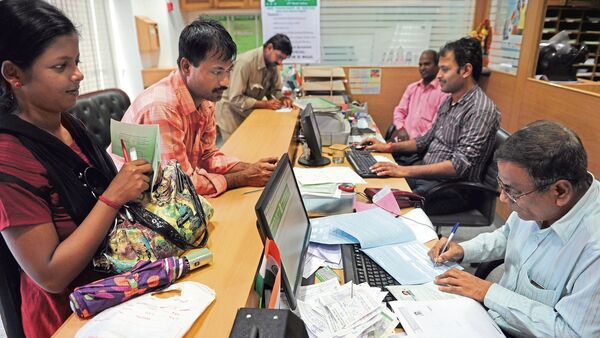Home / Business and Economy / NBFCs Tighten MSME Lending as Defaults Rise Across Sectors
NBFCs Tighten MSME Lending as Defaults Rise Across Sectors
18 Nov
Summary
- Non-bank lenders scale back collateral-free MSME lending
- Bajaj Finance, IIFL Finance see spike in bad loans in MSME segment
- Ugro Capital adopts "prudent approach" amid macro headwinds

As of November 2025, non-bank lenders in India are turning more cautious in their approach to lending to micro, small, and medium enterprises (MSMEs). This shift comes as defaults have risen following a period of aggressive credit expansion to borrowers with weaker credit profiles.
Major non-bank finance companies (NBFCs) like Bajaj Finance, IIFL Finance, Shriram Finance, and Ugro Capital have all slowed the growth of their collateral-free MSME lending in the September quarter. Bajaj Finance, for instance, has scaled back its MSME business after its gross bad loan ratio in the segment hit 2.47%, up from 1.65% a year earlier. The company now expects its MSME book to grow only 11-12% in the current fiscal year, down sharply from its earlier projection of nearly 20%.
Similarly, IIFL Finance saw its MSME gross non-performing assets rise to 5.93% in the September quarter, up from 3.10% a year ago. The company has attributed this to a "strategic recalibration towards low-risk secured lending and pullback from unsecured lending."
Ugro Capital, which primarily lends to MSMEs, has also adopted a "prudent approach" by tightening underwriting and moderating disbursals, citing the prevailing macroeconomic headwinds in the small-ticket MSME segment. Its gross NPA stood at 2.4% as of September-end.
Experts attribute the stress in the MSME sector to over-leveraging, as many small businesses borrowed from multiple NBFCs during a phase of aggressive credit expansion. When pockets of demand slowdown emerged, these NBFCs' limited liquidity and weak capital buffers made them vulnerable.
The MSME sector, which accounts for over 30% of India's GDP and is the second-largest employer after agriculture, is now facing challenges on multiple fronts, including the impact of US tariffs on Indian exports. As non-bank lenders tighten their grip, small businesses are likely to face further constraints in accessing credit in the near term.



